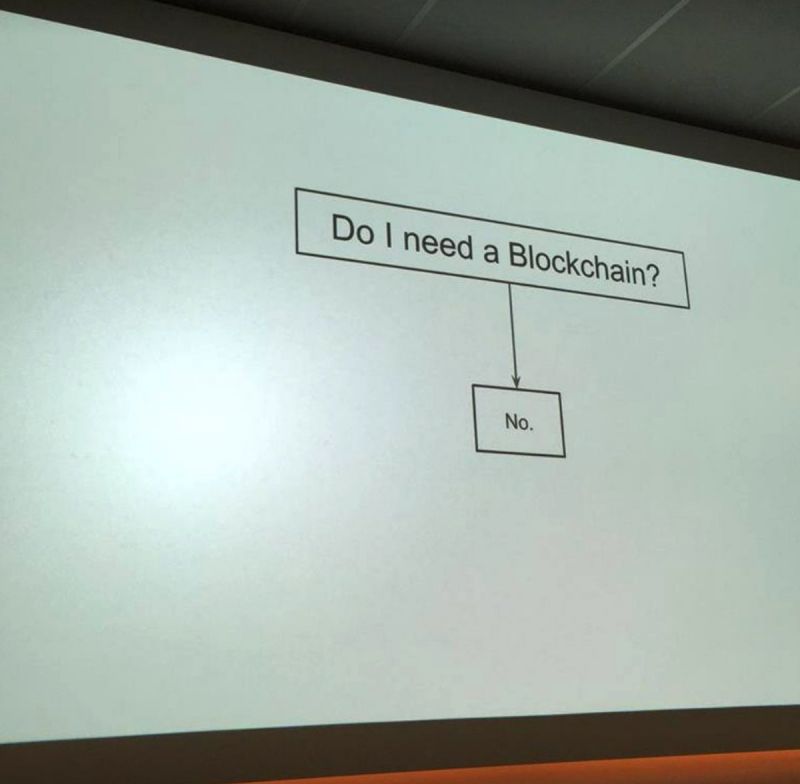Ranter
Join devRant
Do all the things like
++ or -- rants, post your own rants, comment on others' rants and build your customized dev avatar
Sign Up
Pipeless API

From the creators of devRant, Pipeless lets you power real-time personalized recommendations and activity feeds using a simple API
Learn More
Comments
-
 dan-pud8234yIs the idea of a blockchain is that records are publicly verifiable? By anyone? Does sound like personal records are a good use case.
dan-pud8234yIs the idea of a blockchain is that records are publicly verifiable? By anyone? Does sound like personal records are a good use case.
A distributed ledger on the other hand.... -
@dan-pud I don't know I'm new to blockchain this is the random idea that came out of my mind to protect the confidentially medical record for potential cyber-attacks with the help of blockchain?
-
@priyanshu-zeon That only works in the sense that since it's already public, it can't be leaked anymore ¯\_ (ツ) _/¯
I'd suggest you focus on research docs, but then the question is: If anyone can publish, there will be lots of garbage. If someone needs to decide what will be published it's just a journal with a different format - but you could argue that you can use technology to make sure the docs are not modified retroactively. -
 endor54474yPlease please please never ever ever store confidential data on a blockchain. Especially if you don't know what a blockchain is or how it works.
endor54474yPlease please please never ever ever store confidential data on a blockchain. Especially if you don't know what a blockchain is or how it works. -
Hahah. Maybe an app where you can store phone numbers, passwords and bank account numbers on blockchain. XD
-
 endor54474y@ostream have you ever heard of "using the right tool for the job"? There is no scenario in which it would make sense to store private medical data on a public blockchain, full stop. Doesn't matter how many layers of encryption you're using, it's just plain wrong.
endor54474y@ostream have you ever heard of "using the right tool for the job"? There is no scenario in which it would make sense to store private medical data on a public blockchain, full stop. Doesn't matter how many layers of encryption you're using, it's just plain wrong. -
 endor54474y@ostream The solution is hiring people who know how to secure a traditional database. Putting data on a blockchain means that if those same people screw up the encryption, the data will be forever breached AND available to everyone. There is no technical justification for using a blockchain to store private medical data, end of story. If you think otherwise, then you don't fully understand what a blockchain is or does.
endor54474y@ostream The solution is hiring people who know how to secure a traditional database. Putting data on a blockchain means that if those same people screw up the encryption, the data will be forever breached AND available to everyone. There is no technical justification for using a blockchain to store private medical data, end of story. If you think otherwise, then you don't fully understand what a blockchain is or does.
Related Rants

 Given the latest trend, i thought you guys might like this : https://twitter.com/steevedrew/...
Given the latest trend, i thought you guys might like this : https://twitter.com/steevedrew/... BLOCKCHAIN?
BLOCKCHAIN?
I'm currently taking part in IBM hackathon based on a healthcare theme and my project idea is that storing patient healthcare reports or medical research docs on the blockchain, is this idea had some potential to make a difference in the hackathon?
question
hackathon
blockchain
cryptocurrency